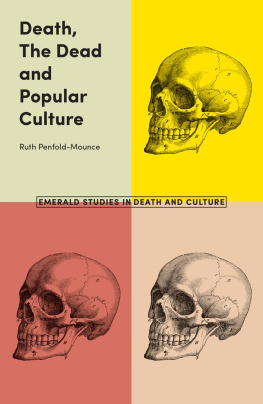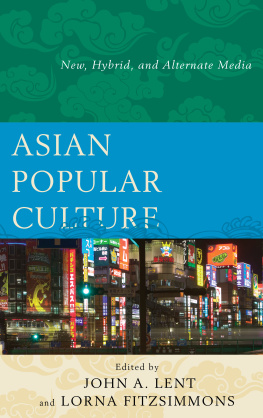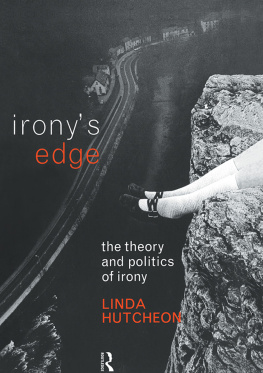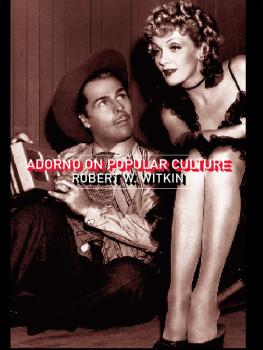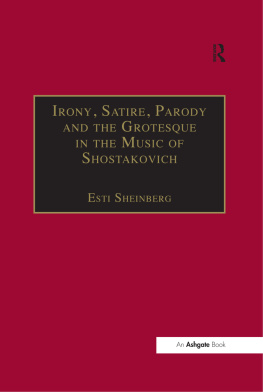
Isnt it Ironic?
This volume addresses the relationship between irony and popular culture and the role of the consumer in determining and disseminating meaning. In a cultural climate largely characterised by fractious communications and perilous linguistic exchanges, the very role of irony in popular culture needs to come under greater scrutiny. The volume focuses on the many uses, abuses, and misunderstandings of irony in contemporary popular culture, and it explores the troubling political populism at the heart of many supposedly satirical and (apparently) non-satirical texts. In an environment in which irony is frequently claimed as a defence for material and behaviour judged controversial, how do we, as a society entrenched in forms of popular culture and media, interpret work that is intended as satire but which reads as unironic? How do we accurately decode works of popular film, literature, television, music, and other cultural forms which sell themselves as bitingly ironic commentaries on current society, but which are also problematic celebrations of the very issues they purport to critique? And what happens when texts intended and received in one manner are themselves ironically recontextualised in another? Bringing together studies across a range of cultural texts, including popular music, film, and television, Isnt it Ironic? will appeal to scholars of the social sciences and humanities with interests in cultural studies, media studies, popular culture, literary studies, and sociology.
Ian Kinane is Senior Lecturer in English Literature at the University of Roehampton, UK. He is the author of Ian Fleming and the Politics of Ambivalence and Theorising Literary Islands, the editor of Didactics and the Modern Robinsonade, and the co-editor of Landscapes of Liminality: Between Space and Place.
The Cultural Politics of Media and Popular Culture
Series Editor:
C. Richard King
Columbia College Chicago, USA
Dedicated to a renewed engagement with culture, this series fosters critical, contextual analyses and cross-disciplinary examinations of popular culture as a site of cultural politics. It welcomes theoretically grounded and critically engaged accounts of the politics of contemporary popular culture and the popular dimensions of cultural politics. Without being aligned to a specific theoretical or methodological approach, The Cultural Politics of Media and Culture publishes monographs and edited collections that promote dialogues on central subjects, such as representation, identity, power, consumption, citizenship, desire and difference.
Offering approachable and insightful analyses that complicate race, class, gender, sexuality, (dis)ability and nation across various sites of production and consumption, including film, television, music, advertising, sport, fashion, food, youth, subcultures and new media, The Cultural Politics of Media and Popular Culture welcomes work that explores the importance of text, context and subtext as these relate to the ways in which popular cultures work alongside hegemony.
Also available in the series:
Afro-Surrealism
The African Diasporas Surrealist Fiction
Rochelle Spencer
Reborn of Crisis
9/11 and the Resurgent Superhero
Annika Hagley and Michael Harrison
Isnt it Ironic?
Irony in Contemporary Popular Culture
Edited by Ian Kinane
For more information about this series, please visit: https://www.routledge.com/The-Cultural-Politics-of-Media-and-Popular-Culture/book-series/ASHSER-1395
First published 2021
by Routledge
2 Park Square, Milton Park, Abingdon, Oxon OX14 4RN
and by Routledge
605 Third Avenue, New York, NY 10158
Routledge is an imprint of the Taylor & Francis Group, an informa business
2021 selection and editorial matter, Ian Kinane; individual chapters, the contributors
The right of Ian Kinane to be identified as the author of the editorial material, and of the authors for their individual chapters, has been asserted in accordance with sections 77 and 78 of the Copyright, Designs and Patents Act 1988.
All rights reserved. No part of this book may be reprinted or reproduced or utilised in any form or by any electronic, mechanical, or other means, now known or hereafter invented, including photocopying and recording, or in any information storage or retrieval system, without permission in writing from the publishers.
Trademark notice: Product or corporate names may be trademarks or registered trademarks, and are used only for identification and explanation without intent to infringe.
British Library Cataloguing-in-Publication Data
A catalogue record for this book is available from the British Library
Library of Congress Cataloging-in-Publication Data
A catalog record has been requested for this book
ISBN: 978-0-367-53081-5 (hbk)
ISBN: 978-0-367-53083-9 (pbk)
ISBN: 978-1-003-08035-0 (ebk)
To Lizzie, without irony
Brian Brems is an Associate Professor of English at the College of DuPage, Illinois, where he teaches film courses. His academic work has focused on genre with numerous pieces on horror. He is the co-editor of Refocus: The Films of Paul Schrader (Edinburgh University Press 2020). In addition, he publishes regularly in online film magazines and websites, including Bright Wall/Dark Room, Vague Visages, and Film Inquiry.
Thomas Britt is an Associate Professor in the Film and Video Studies Programme at George Mason University. He is the head of the screenwriting concentration and has created and taught several classes on the Ethics of Film and Video, Global Horror Film, and Advanced Visual Storytelling. His recent publications include Between Two Mysteries: Intermediacy in Twin Peaks: The Return in Critical Essays on Twin Peaks: The Return; and Came Back Haunted: International Horror Film Conventions in The Haunting of Hill House in The Streaming of Hill House. He is a staff writer and columnist for PopMatters, as well as an active writer of short film screenplays.
Owen Coggins researches ambiguity and marginal religiosity in music cultures. He is currently a Leverhulme Early Career Fellow at Brunel University London working on a project about controversy and ideology in black metal music. His book Mysticism, Ritual, and Religion in Drone Metal was published by Bloomsbury Academic in 2018 and won the book prize of the International Association for the Study of Popular Music in 2019. His articles have also appeared in Popular Music, Implicit Religion, Metal Music Studies, and other journals, and he has recently worked in music therapy research. Owen is Secretary of the International Society for Metal Music Studies, and he co-runs the record label and registered charity Oaken Palace, raising money for endangered species through releasing drone music.
Elizabeth Currin is a former high school English teacher and current teacher educator in the Department of Instruction and Teacher Education at the University of South Carolina. A graduate of Wake Forest University, the University of North Carolina at Greensboro, and the University of Florida, she teaches action research courses and advises practitioner-scholars on the Educational Practice and Innovation EdD programme. She has also engaged in extensive critical ethnographic study of the Opt Out Florida Network, an affiliate of the nationwide Opt-Out Movement against high-stakes standardised tests in the US. Her work has appeared in


